The Best Movies of 2023 (Keith’s List)
Dolls, Godzillas, A-Bombs, Flower Moons: 2023 had it all.
If the films of 2023 create an overarching narrative, it might be one in which the tried and true became the tired and suspect, making room for the new and novel. But that doesn’t really stand up to scrutiny in a year in which the second-most financially successful film was The Super Mario Bros. Movie and even “disappointments” like The Little Mermaid (live-action remix edition) and Ant-Man and the Wasp: Quantumania made a lot of money. Still, who could have predicted that The Sound of Freedom could have ridden QAnon-adjacent paranoia and “novel” ticket-sales methods to become a blockbuster? Who could predict anything? Not me! So let’s just focus on the movies that, however they fit into the year as a whole, made 2023 memorable.
15. The Holdovers (dir. Alexander Payne)
Payne’s movies have always radiated with a thorny affection for humanity, even while depicting human existence’s least-flattering moments as lived by characters seemingly committed to defying others to like them. But few have been quite as warm as The Holdovers, in which three lonely souls (played by Paul Giamatti, Da’Vine Joy Randolph, and Dominic Sessa) gel into an unlikely family stranded at an elite boarding school in the winter of 1970. Equally shaggy and complex, the film should join the ranks of unlikely Christmas movie classics alongside Tangerine and Bad Santa.
14. Anatomy of a Fall (dir. Justine Triet)
The plot of Triet’s Palme d’Or winner could, in bare description, serve as fodder for an episode of Law & Order. The husband of a famed writer falls to his death. Did he jump or was he pushed? Their legally blind child might hold the key! But the use of “anatomy” in the title is no accident. By way of the (peculiar to these American eyes) French legal system, the film explores the nature of a troubled marriage and the possible unknowability of the truth, all of it powered by fantastic performances from Sandra Hüller and Milo Machado Graner as her tormented son.
13. Godzilla Minus One (dir. Takashi Yamazaki)
Following the unsettling, satirical Shin Godzilla by seven years, Toho’s latest Godzilla film starts again at square one (or, as the title suggests, a little bit further back than that). Yamazaki’s film ignores everything that’s come before for a emotionally charged blockbuster that opens in the final days of World War II, when Ryunosuke Kamiki’s protagonist evades his orders as a kamikaze pilot. The film then shifts into an unvarnished look at a Tokyo in ruins after its firebombing. And, oh yeah, there’s a giant lizard to deal with, too, via some remarkable action scenes that serve a story that’s far more than padding between attacks.
12. Asteroid City (dir. Wes Anderson)
A kind of narrative nesting doll in which a behind-the-scenes documentary gives way to a play that gives way to a movie then flits back and forth between each, Anderson’s latest is a visual wonder filled with dry whimsy that never obscures the reckoning with loss at its core. It’s a Wes Anderson movie, in other words, one that suggests the director might not change what that fundamentally means but hasn’t tired of inventing new shapes for it to take.
11. Barbie (dir. Greta Gerwig)
We don’t award bonus points for levels of difficulty at The Reveal, but if we did, some would have to go to Gerwig’s blockbuster take on the venerable fashion doll. Starring Margot Robbie as Barbie (well, one of them anyway) and Ryan Gosling as the first, and most troubled, among the ranks of Kens, Gerwig’s film plunges into all the contradictions Barbie has created over the decades and uses the iconic toy to craft a feminist statement filled with fondness, suspicion, and hope for the future. It’s funny, touching, and visually stunning, too and yet, somehow, Mattel-approved. That’s not easy!
10. All Dirt Roads Taste of Salt (dir. Raven Jackson)
Writer-director Jackson made her feature debut with this dreamy, immersive, told-out-of-time film, set at various points in the life of Mack (played at various ages by Zainab Jah and Kaylee Nicole Jackson but primarily by Charleen McClure), a Black woman born in a Mississippi small-town. Its narrative opaqueness requires some patience, but what’s going on eventually becomes clear. The details of the narrative are also ultimately secondary in an immersive film that’s sensual in the most literal sense of the word, sometimes playing like a shared memory built of sights and sounds unique to a single life.
9. Past Lives (dir. Celine Song)
Song’s striking debut is a not-quite-love story that unfolds over several decades in the life of Nora (Greta Lee) and Hae Sung (Teo Yoo), childhood friends in Seoul who are separated by Nora’s emigration and reunited by technology and chance. It’s an unlikely romance that becomes a consideration of roads not taken, driven more by curiosity than regret, that builds to the understanding that curiosity and heartache aren’t mutually exclusive.
8. All of Us Strangers (dir. Andrew Haigh)
Haigh’s latest offers a different sort of journey to the past and all its thorny conflicting feelings via the story of Adam (Andrew Scott), a Gen X writer whose new romance with a younger man Harry (Paul Mescal) coincides with an emotionally charged reunion with Adam’s parents (Claire Foy and Jamie Bell) at the childhood home where they still live. Further complicating matters: his parents died decades ago. Anchored by Scott’s heartbreaking performance, Haigh’s hazy, dreamlike fantasy considers the inescapability of the past in all its complexity.
7. The Boy and the Heron (dir. Hayao Miyazaki)
The unretired animation legend Miyazaki’s maybe-swan song, The Boy and the Heron brings many of his past obsessions out to play via the story of a troubled boy drawn into a perilous fantasy world by a taunting bird. A weird, difficult, rewarding, beautiful film, it plays as one last chance to contemplate the big questions before hanging it up for good. (Although with Miyazaki, who knows?)
6. Are You There God? It’s Me, Margaret (dir. Kelly Fremon Craig)
Craig’s adaptation of Judy Blume’s classic YA novel is true to the book in both narrative and (more importantly) spirit. Via the story of Margaret (Abby Ryder Fortson), a New York transplant to the ’70s New Jersey suburbs, Are You There God? depicts adolescent rites of passage with honesty and humor, aided by first-rate work from Fortson, Kathy Bates, and Rachel McAdams, whose emotional journey as Margaret’s mother feels as substantive and central to the film as her daughter’s without overshadowing it.
5. Showing Up (dir. Kelly Reichardt)
No director currently working is as good at going small as Kelly Reichardt. Even when Reichardt’s gotten expansive with films like First Cow, Meek’s Cutoff, and Certain Women, it’s always been the inner lives of her characters driving her films. Depicting the events leading up to the gallery exhibition of an Oregon sculptor named Lizzy (Michelle Williams), Showing Up might be her smallest movie to date, but its size, and Williams’s work, makes every setback and frustration register as mammoth in its implications. Bonus attraction: Hong Chau as Lizzy’s co-worker/rival/neighbor/landlady defines the term “frenemy.”
4. Oppenheimer (dir. Christopher Nolan)
Nolan’s biopic of Robert Oppenheimer treats the development of the atom bomb as an event destined to define the rest of history then rests the weight of it all on the skinny frame of Cillian Murphy. Both the perspective and performance (and everything else about the masterfully made film) are utterly convincing.
3. May December (dir. Todd Haynes)
If you’re plotting any 2023 double features, consider pairing Haynes’s film, inspired by Mary-Kay Letourneau and similar tabloid fixtures, with Anatomy of a Fall. Though dissimilar in form, both depict the unknowability of an intimate relationship from those outside of it—and maybe those within it. Julianne Moore and a who-knew-this-guy-was-this-good Charles Melton play the couple in question, years after the scandal has faded into the background, with Natalie Portman doing career-best work as an actress prepping for a role.
2. Fallen Leaves (dir. Aki Kaurismäki)
At the end of this short tale of midlife could-be romance between a woman (Alma Pöysti) and man (Jussi Vatanen) living on the economic fringes of Helsinki, directed with typically deadpan humanity by Kaurismäki, you might find yourself asking, “Did I just see a perfect movie?” A month later, I’m still pretty sure I did.
1. Killers of the Flower Moon (dir. Martin Scorsese)
It’s a masterpiece that uses a shameful, happily forgotten incident in American history to consider the nature of the nation itself made by America’s greatest living director. What more is there to say at this point?
Honorable mentions (in no particular order):
Priscilla, The Killer, Passages, The Royal Hotel, The Zone of Interest, Suzume, Poor Things, Dream Scenario, The Eight Mountains, The Starling Girl, A Thousand and One, The Teachers’ Lounge, You Hurt My Feelings, Ferrari, M3GAN, Napoleon, Eileen, Mission: Impossible—Dead Reckoning Part One, Spider-Man: Across the Spider-Verse, BlackBerry, John Wick Chapter 4, Dungeons & Dragons: Honor Among Thieves, Cassandro, Ernest and Celestine: A Trip to Gibberitia, Beau is Afraid, Afire, Return to Seoul.
Performance of the Year: Emma Stone, Poor Things
A kind of steampunk cross between Frankenstein and Candide, Yorgos Lanthimos’s adaptation of Alasdair Gray’s 1992 novel is one of those films I’ll probably regret leaving off my Top 15 list when I inevitably rewatch it. (It’s happened before.) But I’m already in awe of Stone’s performance, which requires her to change from scene-to-scene as her reborn child-woman makes a journey of discovery across Europe and ultimately evolves into a being seemingly wiser and more sophisticated than her creator could imagine.
Scene of the Year: A trip to the pet store, May December
Among the many ideas at play in May December is the notion that acting is an intrinsically vampiric act made even more vampiric when depicting a real-life figure. This is never more pronounced than in the sequence in which Natalie Portman’s character visits the pet store where her subject began an affair with the boy who’d become her husband. A dread-tinged exchange with the store’s owner gives way to a creepy pantomime and the film briefly becomes a horror movie. Or maybe it’s been that all along.
Reason for Hope: Barbenheimer
Two summer movies with seemingly nothing in common could have canceled each other out. Instead, they became the double feature of the year, confirming that audiences wanted to be entertained and challenged, and that some directors still knew how to do this.
Reason for Despair: Barbenheimer 2024
Scanning next summer for a potential Barbenheimer… no results returned. Let’s not make this a one-off.
Special Effect: Asteroid City’s many layers
Here’s how I attempted to explain the film to my 12-year-old daughter via text: “The movie is set up so you’re watching a 1950s TV special about the making of a play called ‘Asteroid City.’ And then most of the movie is that play, but it doesn’t look like a play, it looks like a movie. (It makes more sense when you see it.)” And, amazing, it does somehow make sense when you see it.
Most Annoying Discourse: Are sex scenes necessary?
I can never tell if perennial complaints about sex scenes truly represent a younger generation that doesn’t want them or are just comments elevated from the fringes of social media. Either way, we always end up talking about it. So here is a partial list of 2023 movies in which sex scenes were essential to storytelling: Poor Things, All of Us Strangers, May December, Napoleon, Oppenheimer, and (above all) Passages.
Most Anticipated Film of 2024: Nosferatu
Last year I picked Michael Mann’s Ferrari, which I liked a lot but did not make my best-of list. Ditto Crimes of the Future the year before (though it might make a revised list). So I don’t want to cure Robert Eggers’s Nosferatu with out-of-proportion expectations but, come on, that’s going to rock, right?
Tomorrow: Scott’s picks

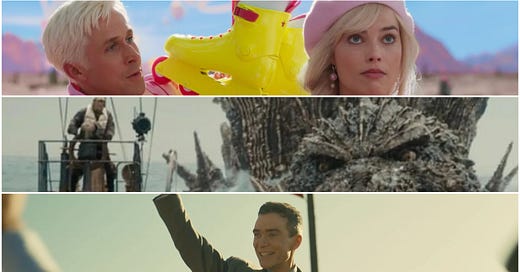



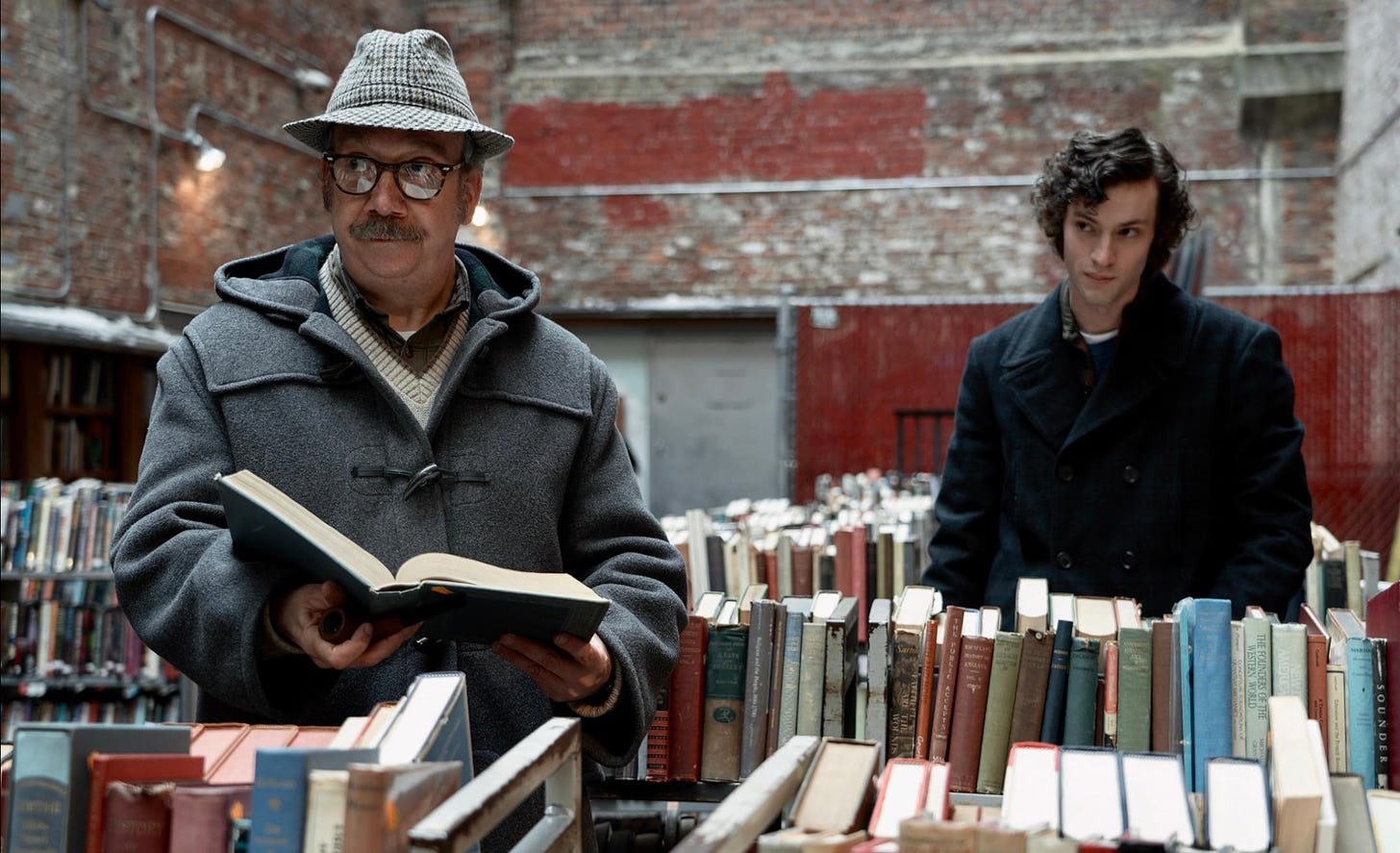
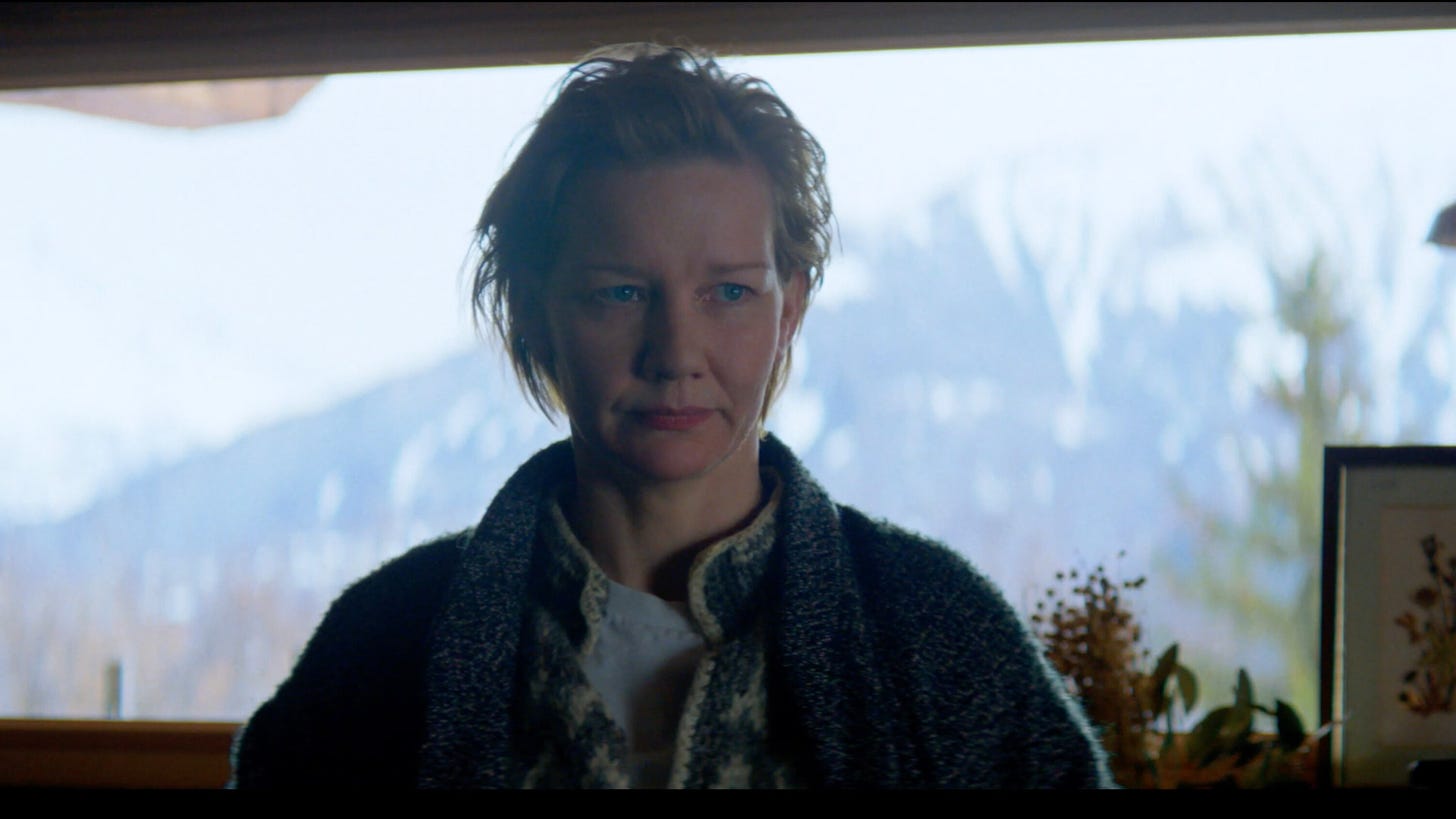

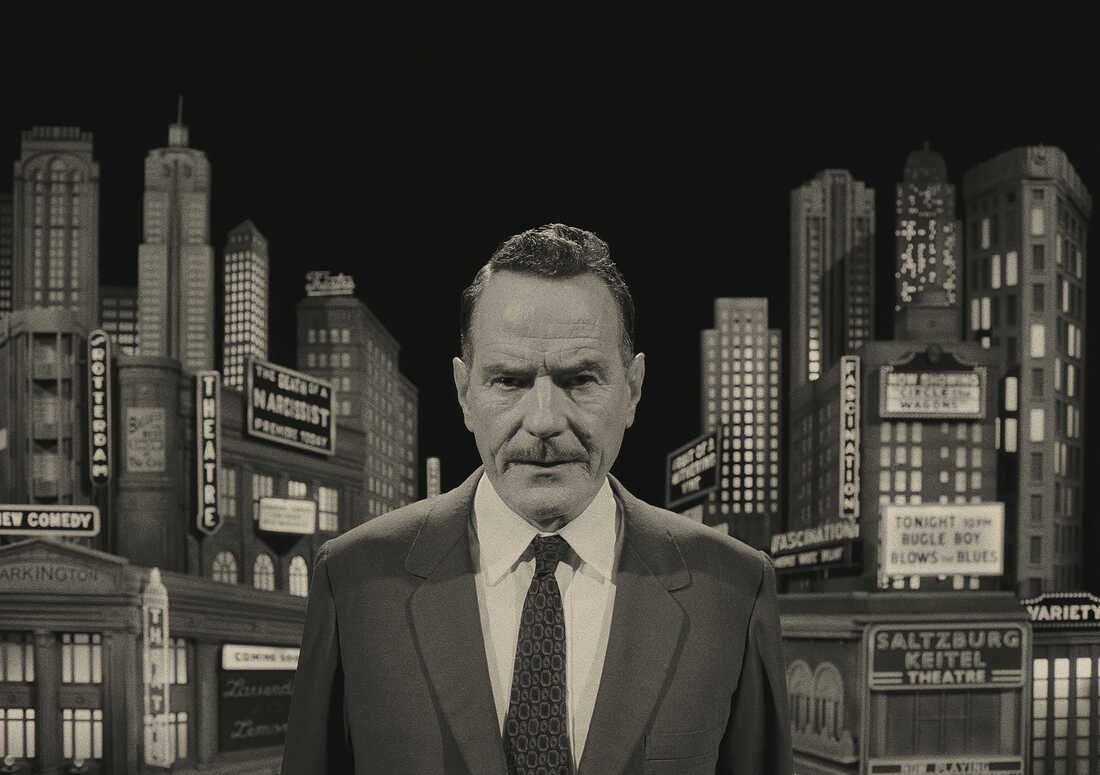
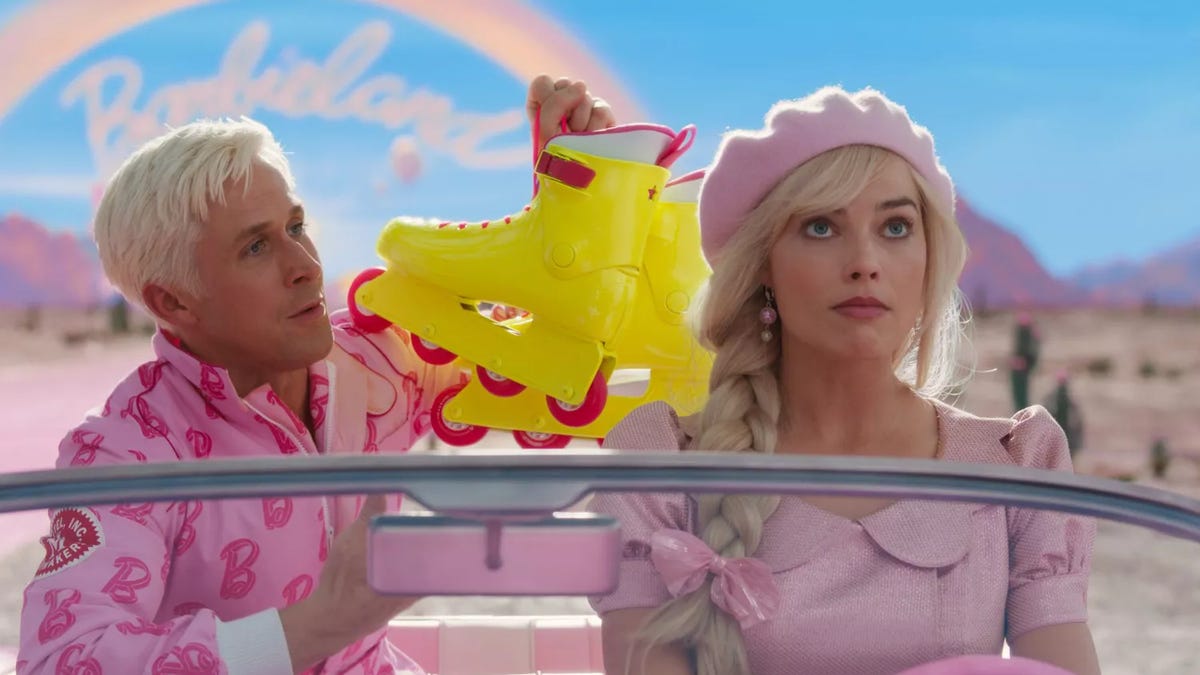
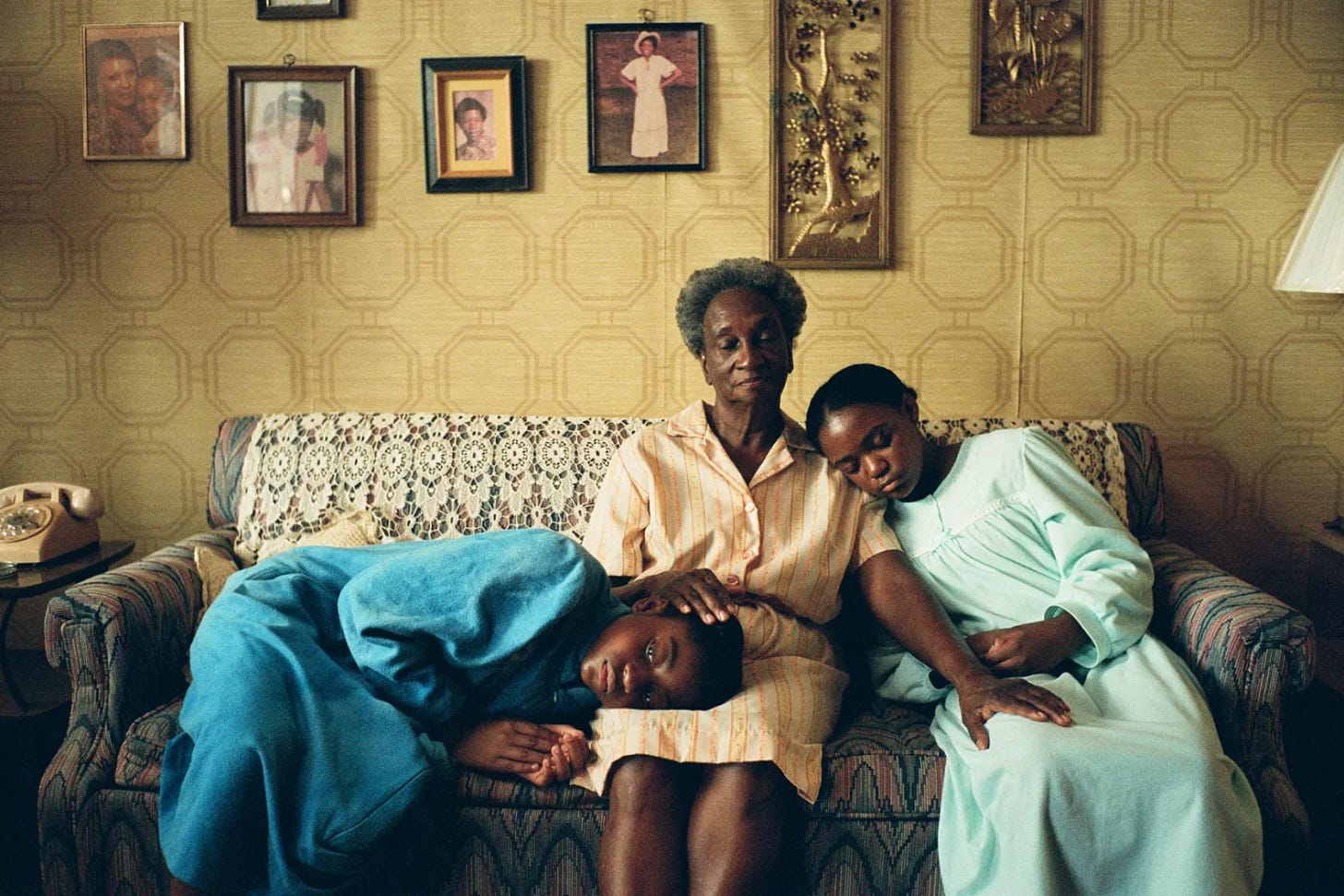
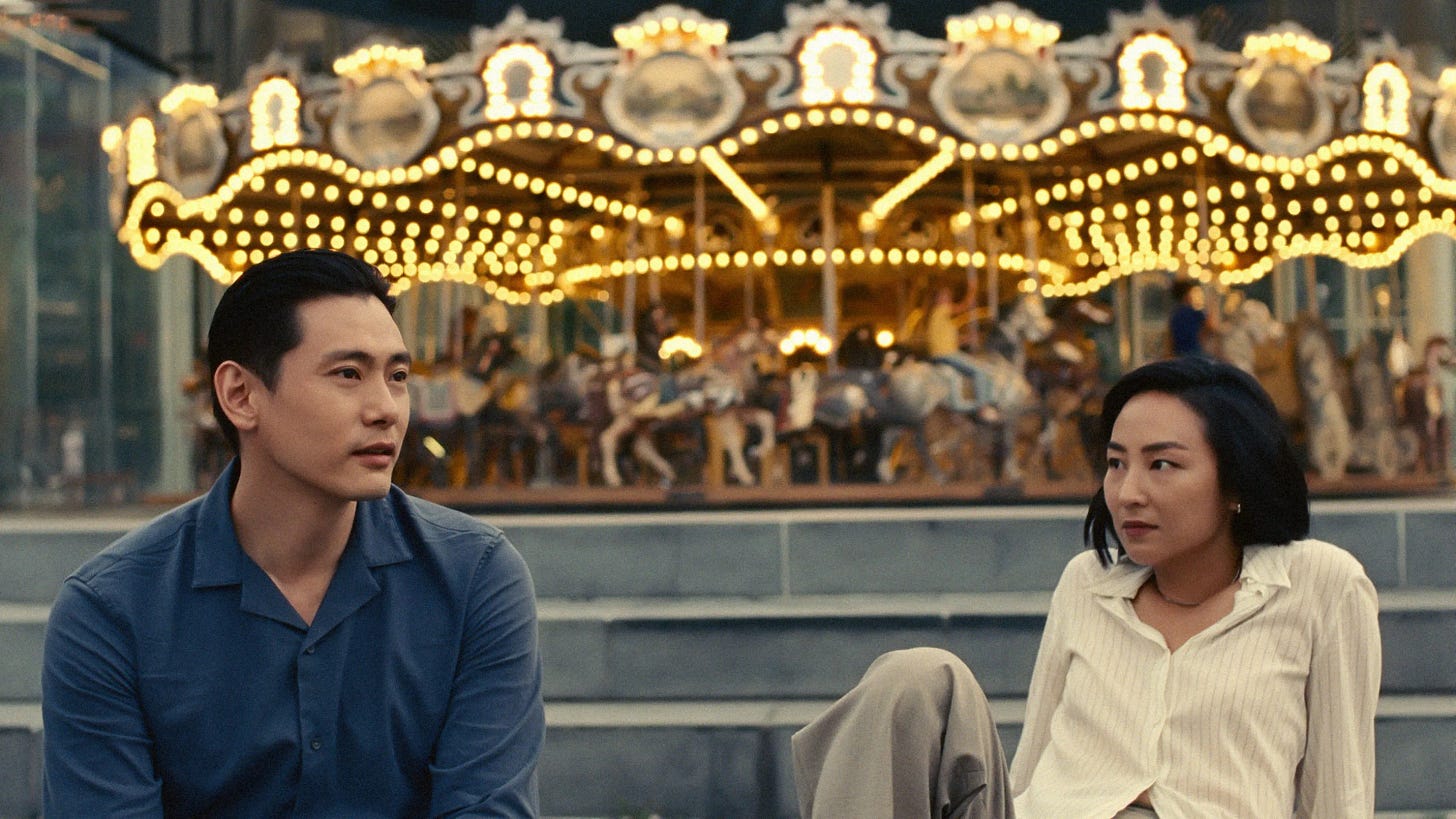
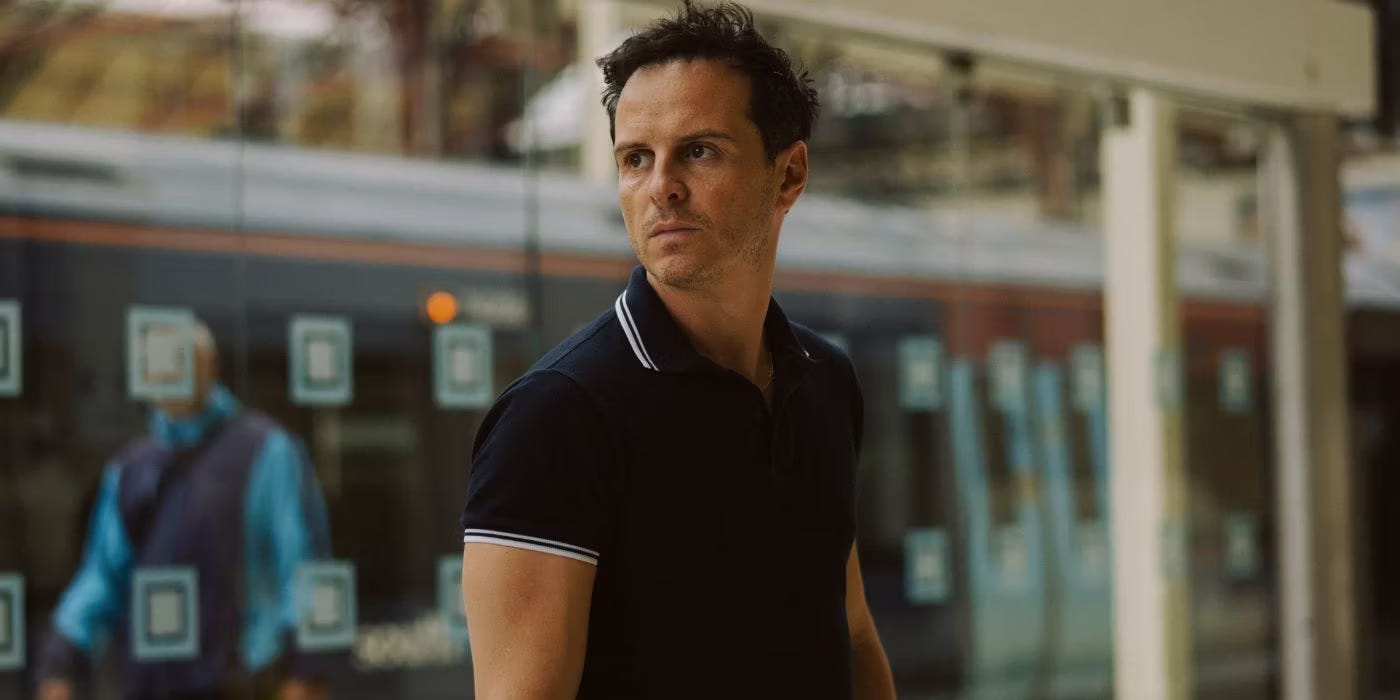
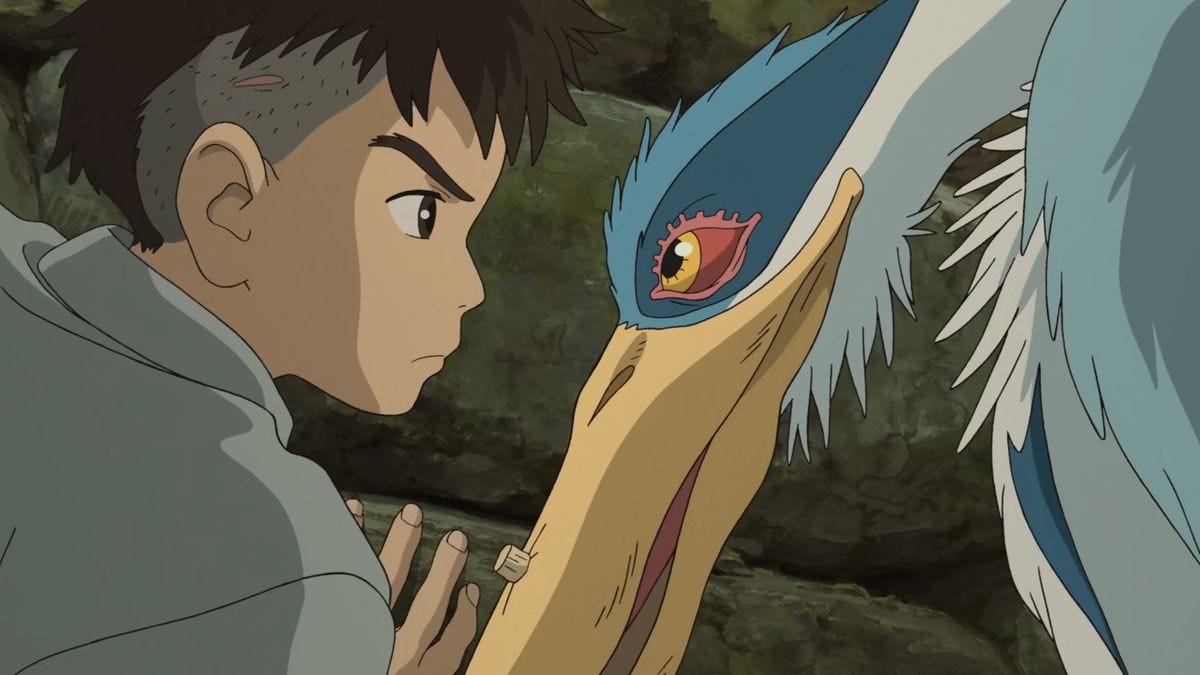
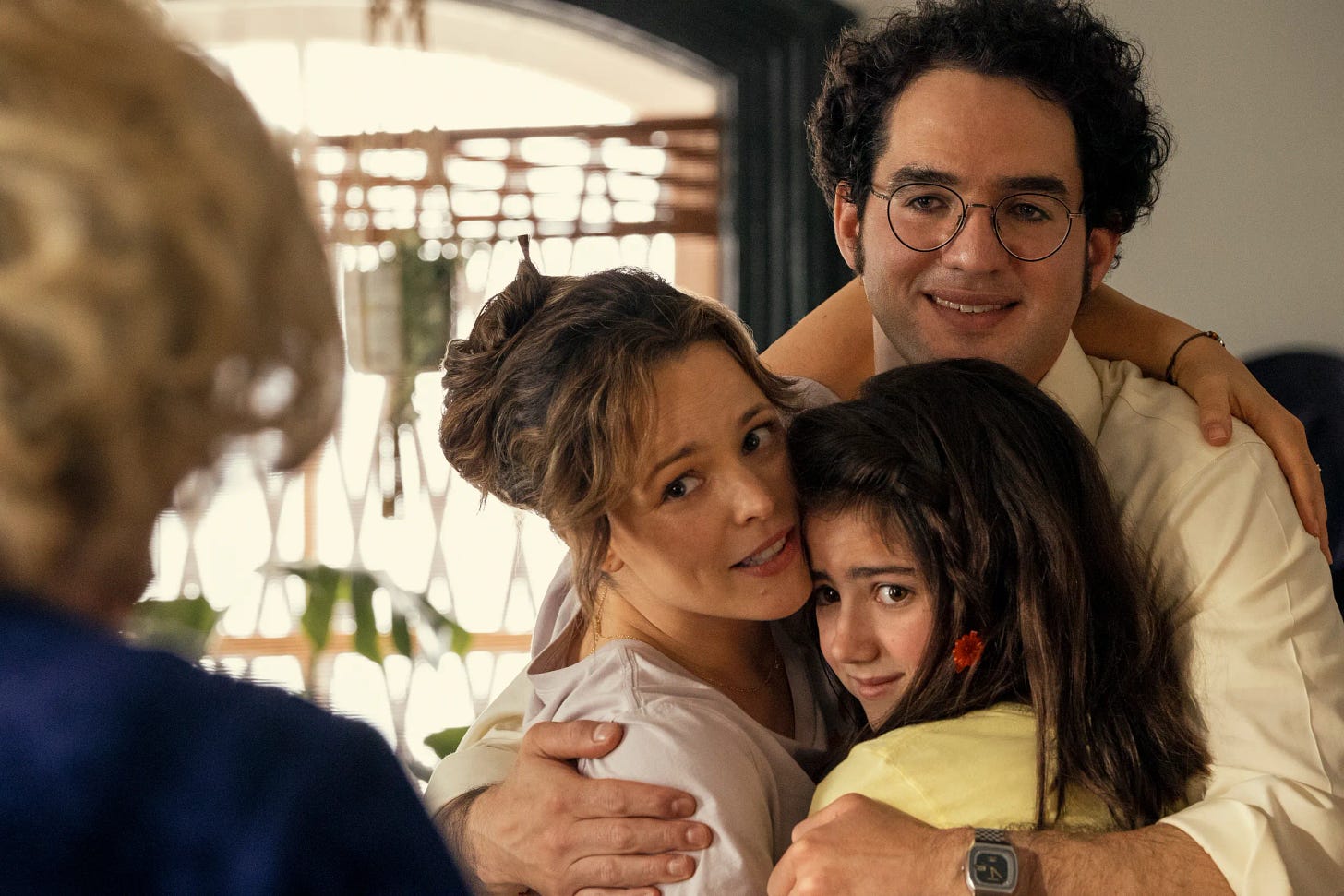
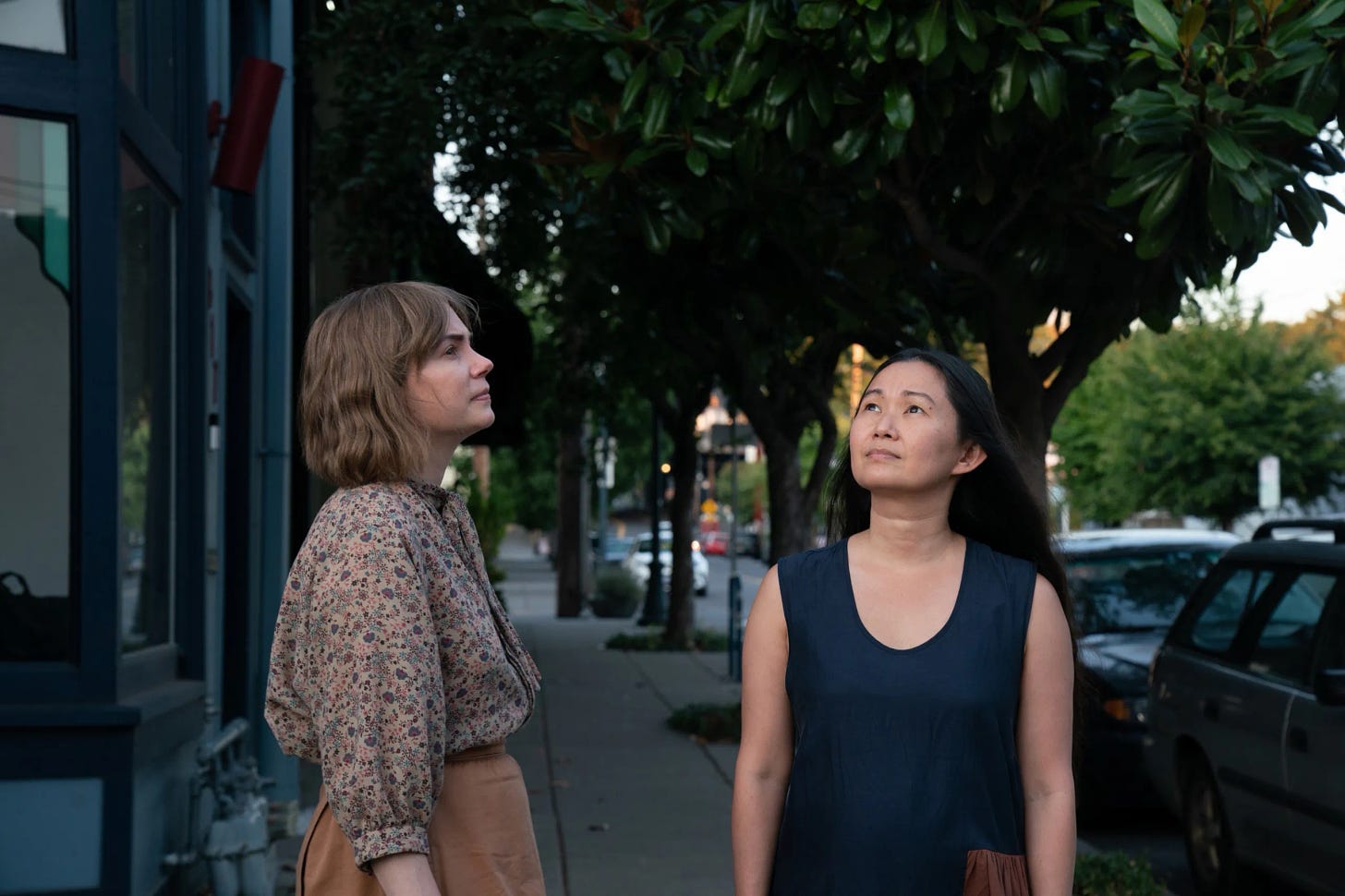
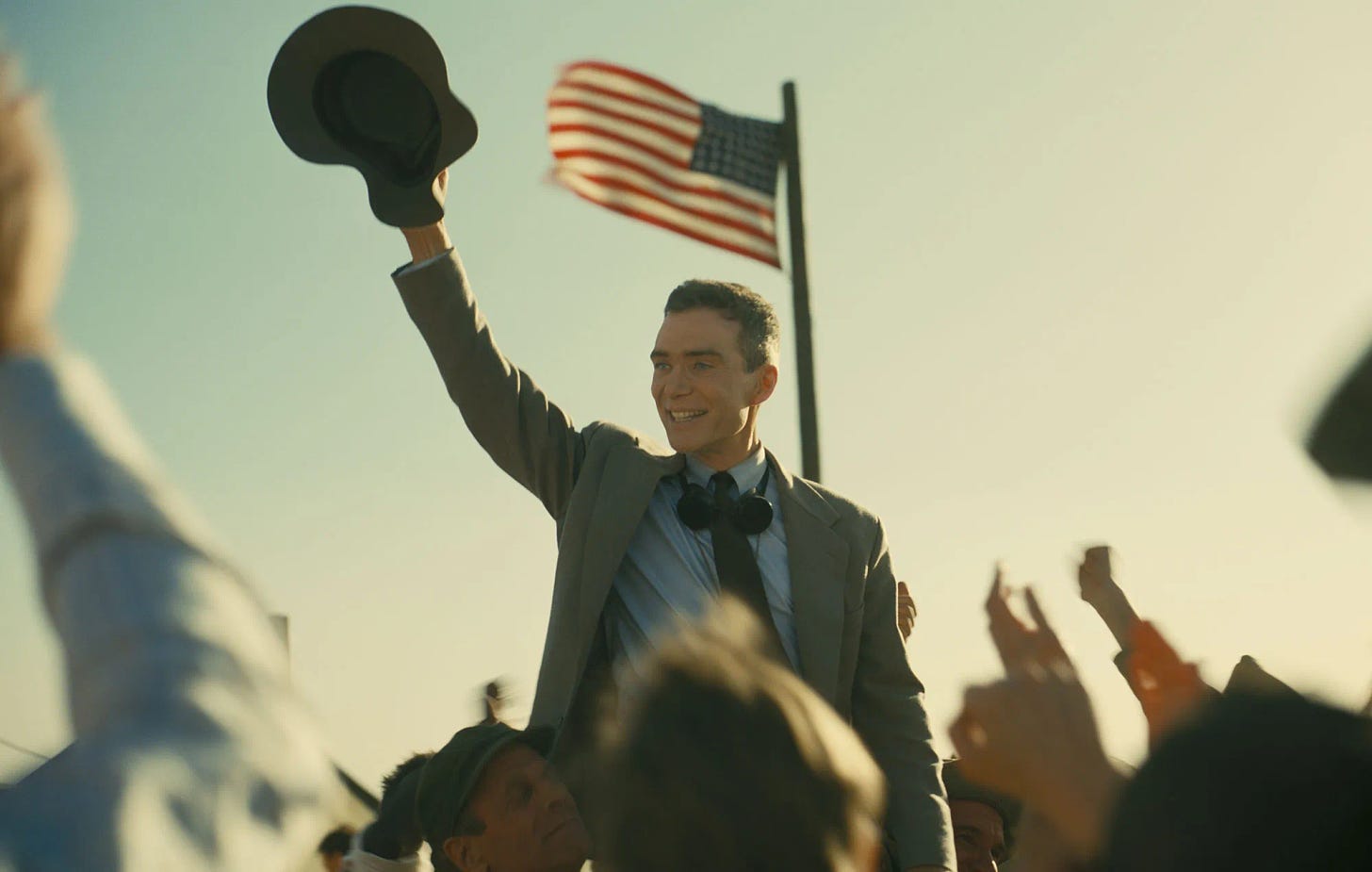
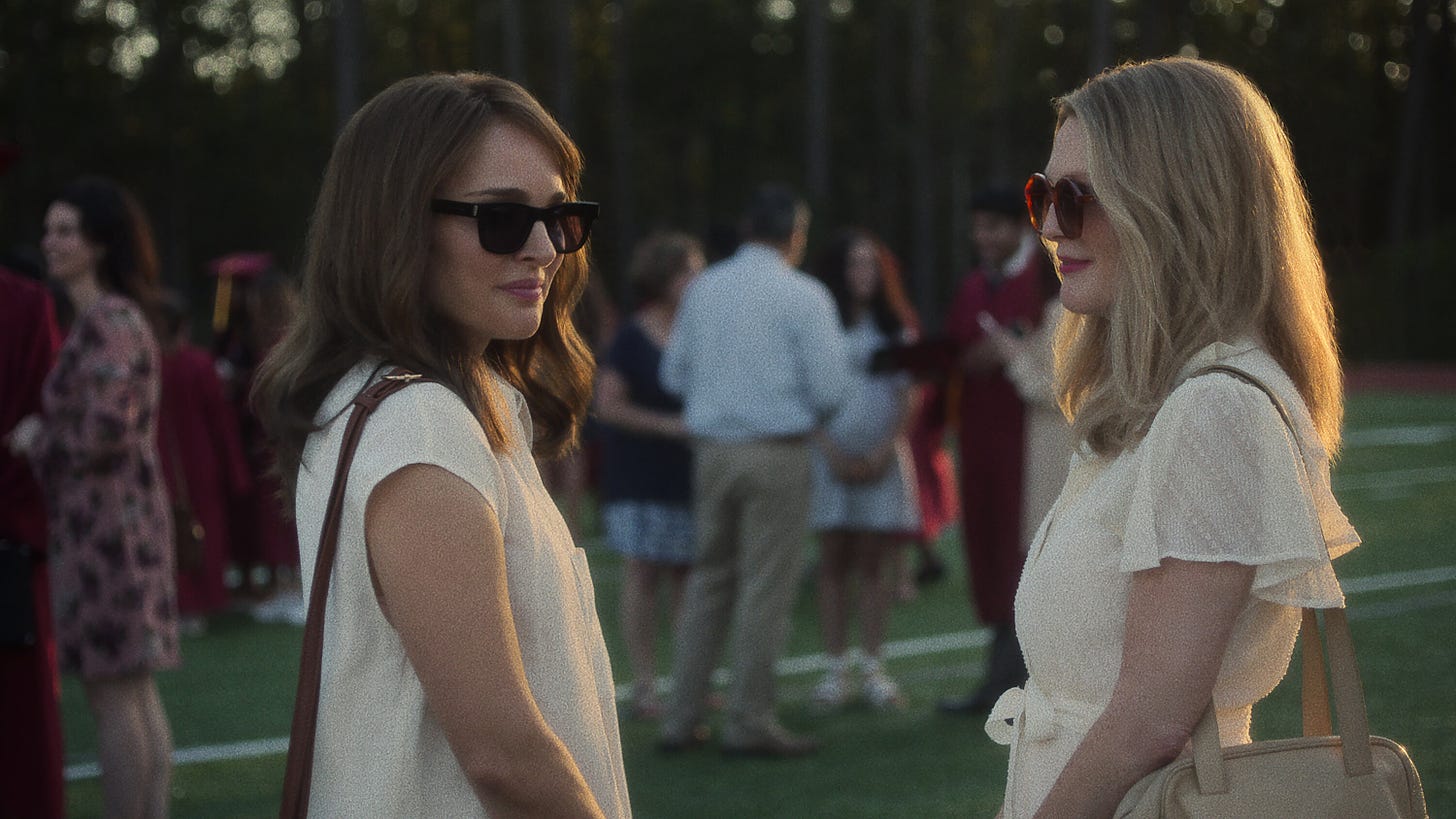
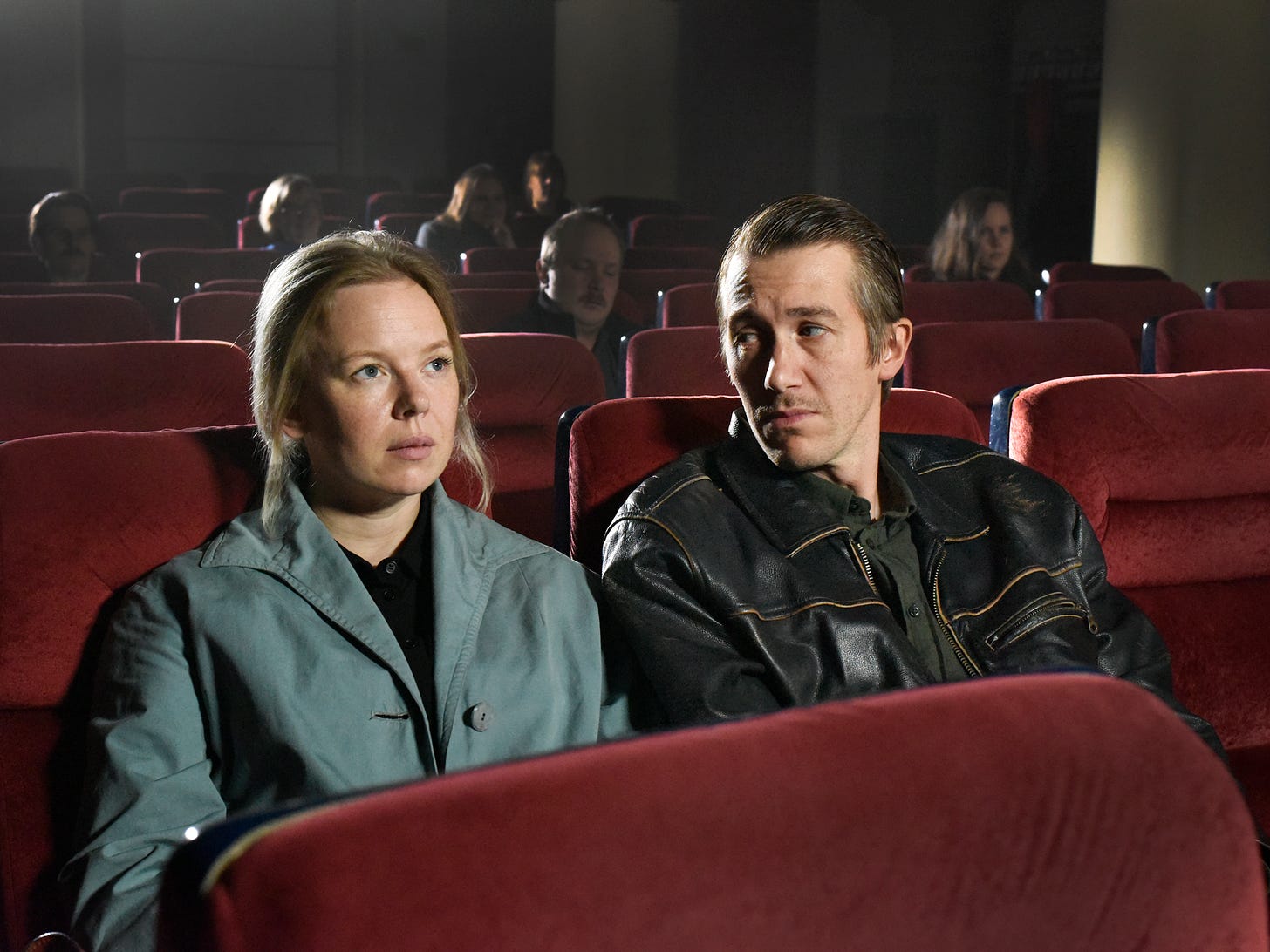

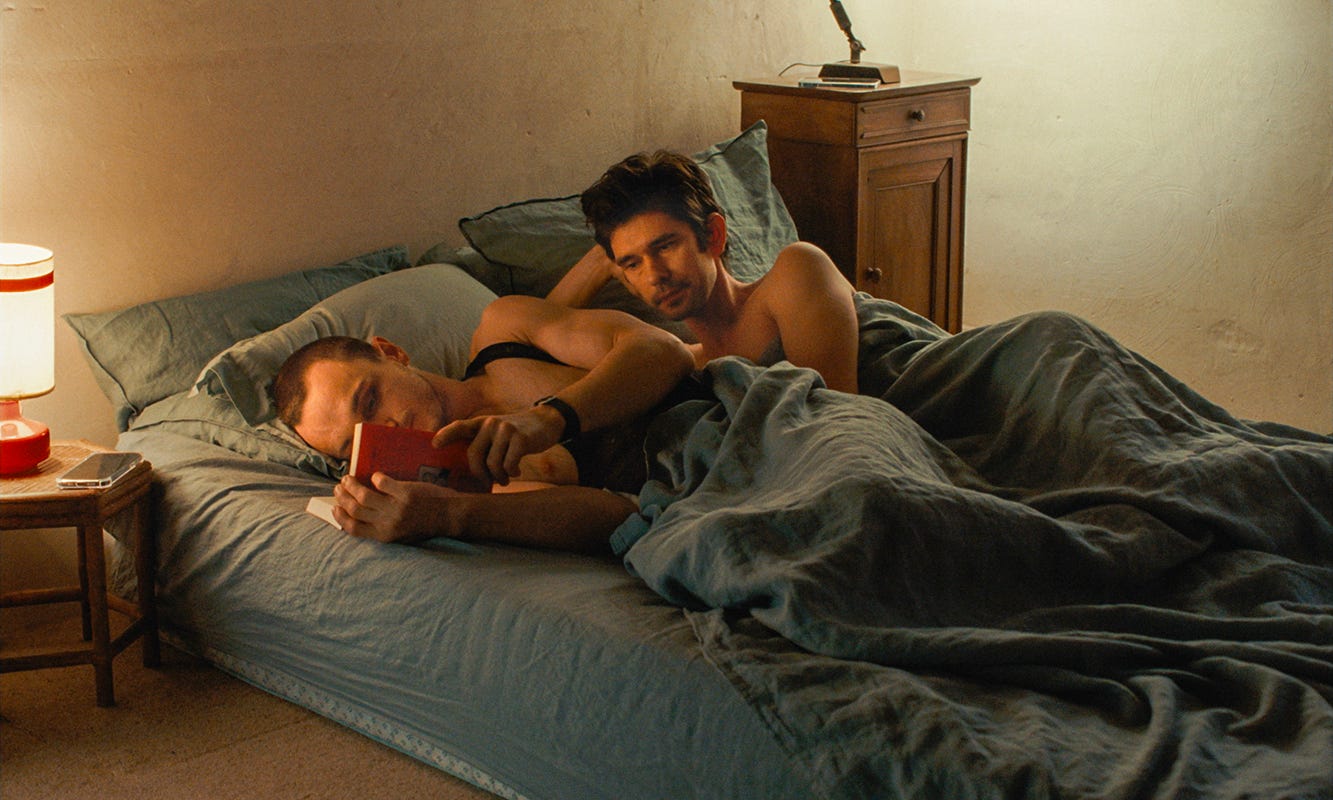
Re: #7, this movie isn't a swan song. It's a heron song. That's okay. I can't tell birds apart either.
Re: your #1, no great director's lapses into self-parody bug me more than Scorsese's---and not many think Scorsese's self-parody phase started as early as I think it did. I keep wanting to watch KILLERS OF THE FLOWER MOON, and then just picturing it opening with "Gimme Shelter" blaring as Leo solemnly intones, "Ever since I was a kid, I wanted to be a killers of the flower moon" and thinking, nope, life is too short.
But, you know what? Maybe life isn't too short to give Scorsese another chance. Maybe life is too short not to give Scorsese another chance. The man's made a dozen great movies, a bunch of good ones, and if he repeats himself once in a while, I can live with that.